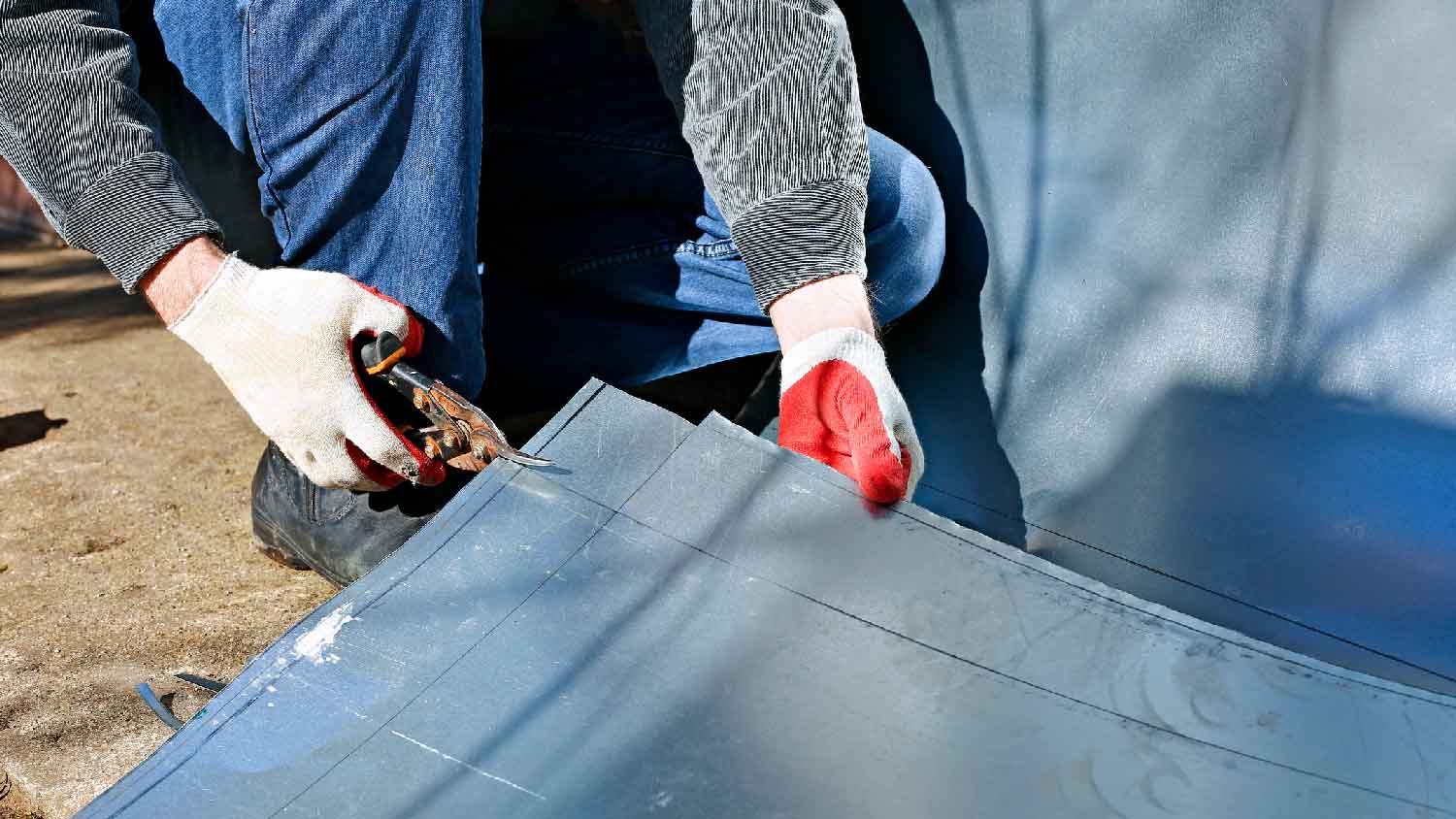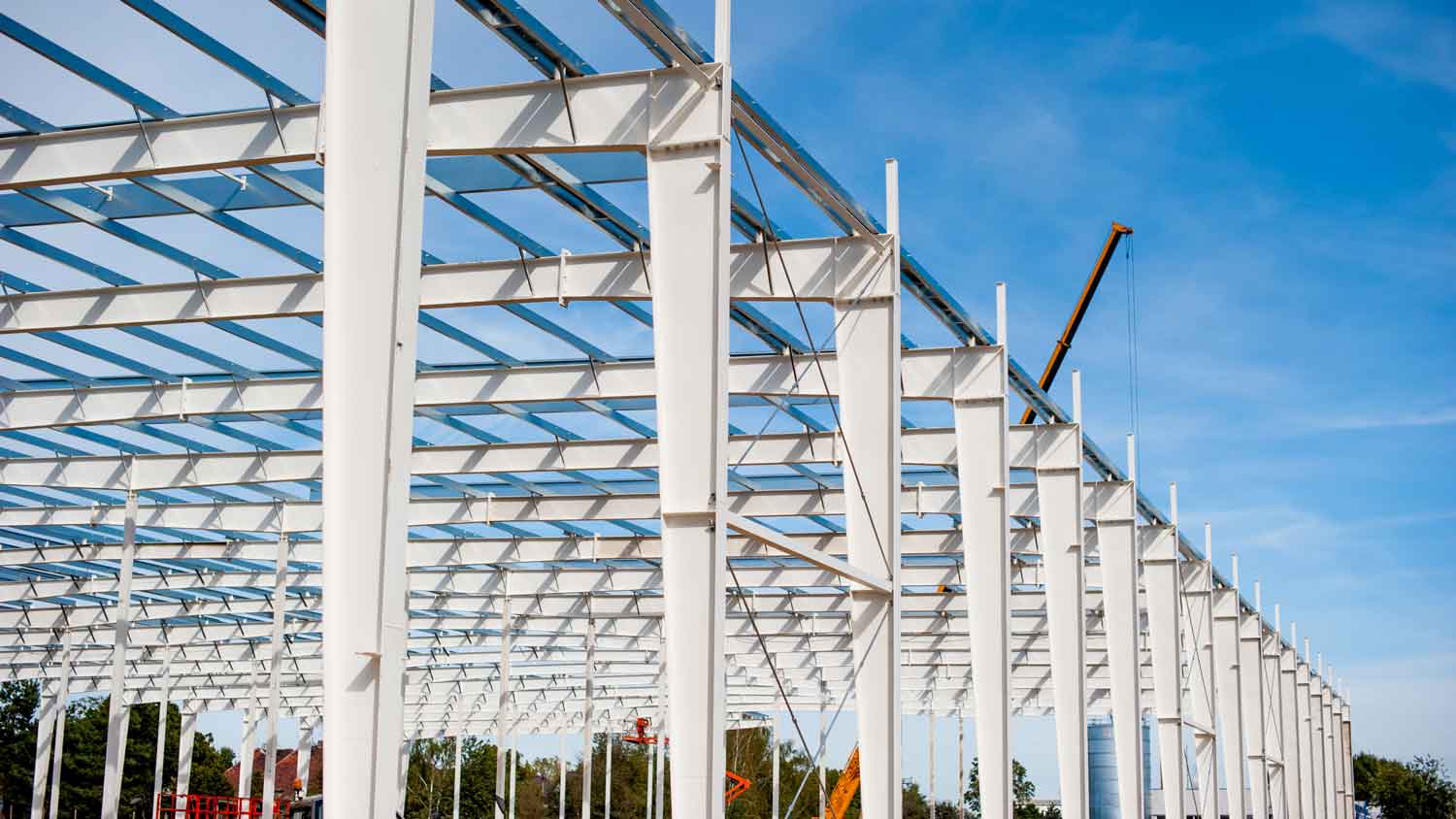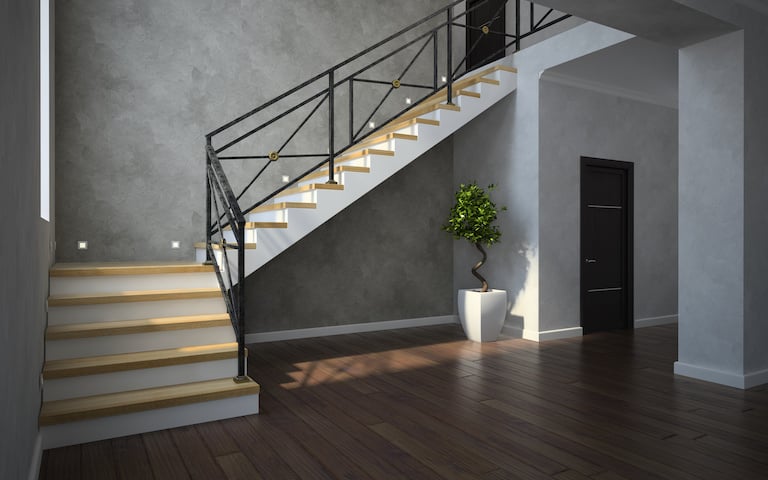
Discover how much a wrought iron railing costs. Get detailed price breakdowns, installation factors, and tips to save on your new railing project.
Metal fabrication and restoration costs depend on your project and location. Check with a local pro for your specific job.
Sheet metal fabrication cost varies by material and project type.
Custom designs and finishes increase overall project expenses.
Professional labor ranges from $50 to $130 per hour and ensures quality and safety for complex jobs.
Ongoing maintenance and repairs affect long-term costs.
Planning ahead can help homeowners save on fabrication projects.
Sheet metal fabrication cost averages $1,581, with an average range from $418 to $3,018. Homeowners may pay as little as $100 for small, simple jobs or up to $9,500 for large, custom projects. Costs are often calculated per project, but some fabricators charge per square foot or per hour, depending on the scope.
Sheet metal fabrication matters because it’s essential for everything from ductwork and countertops to roofing and decorative accents. Labor rates often fall between $50 to $130 per hour, while material costs vary widely based on the intended use.
Understanding what impacts sheet metal fabrication cost will help you plan your project and avoid surprises. Several factors—from the type of project to the materials you select—play a major role in the final price.
Homeowners turn to sheet metal fabrication for a variety of projects, such as custom ductwork, kitchen countertops, roofing panels, enclosures, and decorative features. Each type of project involves different fabrication methods, including cutting, bending, welding, or assembling. More complex work, like custom shapes or intricate finishes, increases the cost. Standard jobs are more affordable than fully custom projects.
| Project Type | Cost Range | Description |
|---|---|---|
| Ductwork | $3,500–$8,000 | Full-home HVAC ductwork installation |
| Countertops | $3,000–$7,000 | Kitchen or bathrooms (40–60 sq. ft.) |
| Roofing panels | $9,000–$22,00 | Full roof installation (1,500–2,000 sq. ft.) |
| Decorative features | $300–$2,000 | Backsplashes, wall art, or ornamental panels |
The size of your project is one of the biggest cost drivers. Larger pieces require more raw material, additional labor, and often specialized equipment. Small projects may be subject to minimum order fees or setup charges, while large-scale jobs benefit from economies of scale but still carry higher overall costs.
Material choice has a major influence on your sheet metal fabrication cost. Common options include aluminum, stainless steel, galvanized steel, copper, and brass. Each material varies in price, both due to raw cost and how easy it is to work with. Specialty metals or thicker gauges often lead to higher project costs. Waste, finish, and required durability also affect your selection.
| Material Type | Cost per Square Foot | Notes/Features |
|---|---|---|
| Aluminum | $4–$10 | Lightweight, corrosion-resistant, easy to shape |
| Stainless steel | $8–$19 | Durable, rust-resistant, popular for kitchens |
| Galvanized steel | $3–$8 | Affordable, good for exterior/weather exposure |
| Copper | $15–$35 | Decorative, antimicrobial, premium look |
| Brass | $12–$25 | Ornamental, durable, distinct warm coloring |
Labor is a significant part of sheet metal fabrication cost. Professionals involved include fabricators, welders, and installers. Hourly labor rates range from $50 to $130, depending on skill level, project complexity, and the type of pro you hire. For example, roofers charge $50 to $75 per hour, while welders charge $70 to $130 per hour.
Highly detailed or custom work often requires more time and expertise, increasing labor fees. Urban areas or regions with high demand may also see higher labor rates. Rush jobs or after-hours work can add premium charges to your final bill.
Preparation costs cover site measurements, design consultations, and CAD (computer-aided design) drawings. These are critical for ensuring accuracy and fit. You may also pay delivery fees or setup charges, especially for large items. If your project involves replacing existing sheet metal, there could be additional fees for material removal and surface prep before installation.
Tipping is not a standard expectation in the sheet metal fabrication industry. For small residential jobs, tips are uncommon, but you can offer one if you feel the crew went above and beyond. When tipping, amounts range from $20 to $50 per worker. Alternatively, positive reviews, referrals, or providing refreshments are thoughtful ways to show appreciation for quality work.
Several additional factors can influence your sheet metal fabrication cost:
Demolition or removal of old sheet metal or existing structures.
Post-construction cleanup and debris disposal.
Permit fees for exterior or structural projects.
Foundation or framing work for structural installations.
Finishing options such as powder coating, painting, or polishing.
Integration with HVAC, electrical, or other home systems.
Decorative add-ons like embossing, etching, or custom hardware.
Each of these can add to your overall project total, so it’s important to discuss them with your fabricator up front.
Sheet metal installations require some ongoing care and maintenance to stay in good condition and work efficiently. Here’s what you can expect over the life of your project.
Routine maintenance is essential for preserving the appearance and performance of fabricated sheet metal. Tasks include cleaning, rust prevention, and resealing joints. For example, stainless steel needs only regular wiping, while galvanized steel may require periodic rust treatment. Professional maintenance services often cost $100 to $300 per visit. Material choice plays a role—copper and stainless steel need less frequent care than untreated steel.
Some fabricated sheet metal systems, such as HVAC ductwork, have associated operating costs. Efficient ductwork can lower energy bills by improving airflow and insulation. You’ll also need to budget for consumables like filters and fasteners, which are small but recurring expenses. Keeping your system clean and in good repair helps minimize these costs over time.
Dents, cracks, and corrosion are common repair needs for sheet metal. Repair costs depend on the extent of the damage and the type of metal. Minor repairs, such as dent removal, range from $100 to $400, while seam repairs or corrosion treatment can cost $200 to $800. If damage is extensive or if the metal is seriously corroded, replacement may be more cost-effective than repair.
Custom sheet metal installations, especially those that are structural or high-value, can affect your homeowner’s insurance. Some policies require notification or additional coverage for new systems or features. Insurance may cover damage, theft, or liability, but check with your provider for specifics. For large or unique projects, consider supplemental insurance, which can cost a few hundred dollars per year.

Sheet metal fabrication requires professional requirement, safety gear, and knowledge of how to properly bend, cut, and finish metal to meet specifications while also avoiding injury. The complexity of this task is why most homeowners hire local metal fabricators.
Skip the complicated task of DIY metal fabrication in your home for these reasons:
By the time you set up a safe workspace, purchase or rent tools, and purchase safety equipment, you're eating into your DIY savings.
DIYers faced risks for serious cuts, heat burns, and exposure to hazardous dust and fumes when handling cutting equipment.
Flying sparks during fabrication can lead to vision loss.
Inaccurate cuts or metal shaping can lead to poor results, improper fits, and money that's been wasted on raw metal and other materials.
Professional metal fabricators spend years learning proper techniques for cutting, bending, welding, and assembling to be able to offer warranted work.
Homeowners often choose add-ons to enhance function or appearance. Here are some popular options and their average costs:
Custom finishes, such as powder coating or anodizing, cost $100 to $800.
Insulation or soundproofing layers add $4 to $10 per square foot.
Decorative cutouts or patterns range from $150 to $600.
Integrated hardware, like hinges, handles, or fasteners, costs $5 to $60 per item, although some small jobs have a minimum service charge of $50 to $150.
Weatherproofing or corrosion-resistant treatments add $100 to $400.
Installation of related systems, such as vents or fans, runs $150 to $700.
Delivery and on-site installation fees range from $100 to $600.
Consider these cost-saving tips to make your sheet metal project more wallet-friendly:
Get multiple quotes from local metal fabricators.
Choose standard materials and finishes when possible.
Simplify design to reduce labor and material waste.
Combine multiple projects or orders for volume discounts.
Handle site prep or cleanup yourself to lower labor fees.
Schedule projects during off-peak times for better rates.
Reuse or recycle existing sheet metal components if feasible.
Be prepared to discuss the scope of your project with a pro based on the type of sheet metal project and size of your home.
If your project includes custom shapes or finishes, be prepared to pay additional labor fees.
Ask your pro about costs for removal and hauling if you're replacing existing metal.
Home is the most important place on earth, which is why Angi has helped more than 150 million homeowners transform their houses into homes they adore. To help homeowners with their next project, Angi provides readers with the most accurate cost data and upholds strict editorial standards. We extensively research project costs to develop the pricing data you see, so you can make the best decisions for you and your home. We rely on reputable sources, including the U.S. Bureau of Labor Statistics, academic journals, market studies, and interviews with industry experts—all to ensure our prices reflect real-world projects.
Want to help us improve our cost data? Send us a recent project quote to [email protected]. Quotes and personal information will not be shared publicly.
From average costs to expert advice, get all the answers you need to get your job done.

Discover how much a wrought iron railing costs. Get detailed price breakdowns, installation factors, and tips to save on your new railing project.

Find who to hire for steel beam installation. Learn who to call, what each pro does, and plan your project with confidence.

Metal stairs or railings can add elegance to your home, inside or out. Be ready to answer these metal stairs questions before installation.